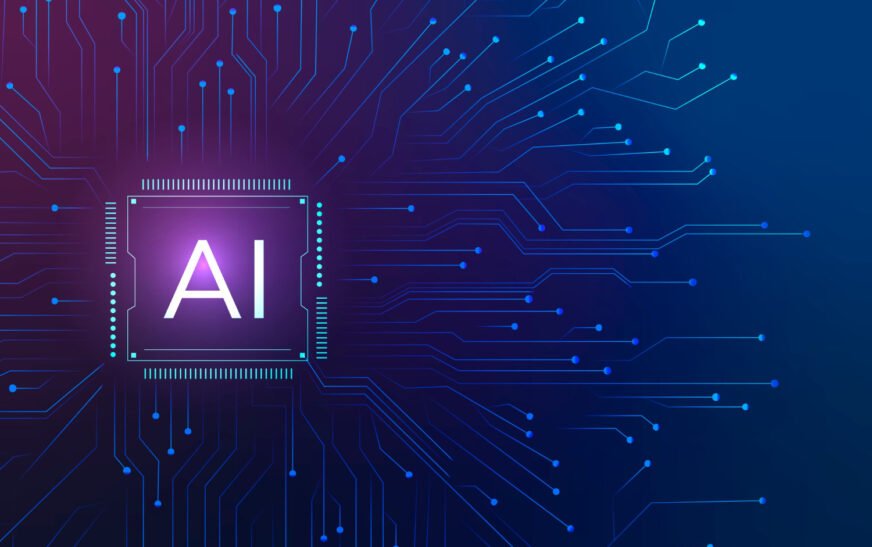In the rapidly evolving landscape of technology, few developments hold as much promise as the intersection of quantum computing and AI. This powerful combination represents a paradigm shift in how we process information and solve complex problems. Quantum AI, the fusion of quantum computing’s computational power with artificial intelligence’s learning capabilities, is poised to transform industries ranging from healthcare to finance, potentially solving problems that remain beyond the reach of today’s most powerful supercomputers. As researchers and tech giants invest heavily in this field, understanding the fundamentals of quantum computing and AI, their synergies, and potential applications becomes increasingly valuable for businesses and technologists alike.
Understanding Quantum Computing and AI: The Building Blocks
The Power of Quantum Computing
Quantum computing represents a revolutionary approach to computation that harnesses the principles of quantum mechanics to process information in fundamentally different ways than classical computers. Unlike traditional computers that use bits (0s and 1s), quantum computers utilize quantum bits or “qubits” that can exist in multiple states simultaneously thanks to a phenomenon called superposition.
This unique property enables quantum computers to:
- Process vast amounts of information in parallel
- Perform complex calculations exponentially faster for certain problems
- Explore multiple possible solutions simultaneously
Another key quantum principle is entanglement, where qubits become linked in such a way that their states become interdependent regardless of physical distance. This interconnectedness allows quantum computers to perform highly coordinated calculations and is partly responsible for their computational advantage.
The Evolution of Artificial Intelligence
Artificial intelligence encompasses a broad range of technologies designed to perform tasks that typically require human intelligence. At its core, AI aims to develop machines with cognitive abilities similar to humans, enabling them to process information, identify patterns, and make informed decisions.
Key components of modern AI include:
- Machine learning (ML): Allowing computers to learn from data without explicit programming
- Deep learning: Using artificial neural networks with multiple layers to process complex data
- Natural language processing: Enabling computers to understand and generate human language
- Computer vision: Equipping machines to interpret visual information
AI has already transformed numerous industries, from healthcare diagnostics to financial fraud detection, by automating complex tasks and uncovering insights from massive datasets.
How Quantum Computing and AI Work Together to Create Powerful Results
The integration of quantum computing and AI creates a powerful partnership that capitalizes on their complementary strengths. While AI excels at finding patterns and making predictions from large datasets, quantum computing offers the potential to dramatically accelerate these processes and handle even more complex problems.
Quantum Machine Learning (QML) represents one of the most promising areas of this convergence. By applying quantum algorithms to machine learning tasks, researchers aim to achieve significant improvements in both speed and accuracy. QML could potentially overcome computational barriers that currently limit AI development, particularly when dealing with massive, multidimensional datasets.
The advantages of quantum computing for AI include:
- Exponential computational speedups for specific types of problems
- Enhanced pattern recognition in complex datasets
- Improved optimization capabilities for training AI models
- More efficient processing of high-dimensional data
For example, quantum algorithms like the Quantum Approximate Optimization Algorithm (QAOA) show promise for enhancing the optimization tasks central to many machine learning processes. Similarly, the HHL algorithm offers potential exponential speedups for solving linear systems of equations, a fundamental operation in many AI applications.
Practical Applications of Quantum AI Across Industries
The convergence of quantum computing and AI has the potential to revolutionize numerous sectors through enhanced computational capabilities and more sophisticated problem-solving approaches.
Healthcare and Drug Discovery
In healthcare, quantum AI could transform how we develop new treatments and understand diseases:
- Accelerating drug discovery by simulating molecular interactions with unprecedented accuracy
- Analyzing vast genomic databases to enable truly personalized medicine
- Improving medical imaging analysis and diagnostic accuracy
- Optimizing complex clinical trials and treatment plans
Quantum Support Vector Machines (QSVMs) have already shown promising results in classifying cancer tissue samples with higher accuracy than classical methods.
Finance and Risk Analysis
The financial sector stands to benefit significantly from quantum AI applications:
- More sophisticated market modeling and prediction
- Enhanced portfolio optimization across more variables
- Improved fraud detection through more comprehensive pattern analysis
- More accurate risk assessment models for insurance and lending
Quantum algorithms could process market variables and dependencies at speeds unattainable by classical systems, potentially revolutionizing algorithmic trading.
Logistics and Manufacturing
Complex optimization problems that plague logistics and manufacturing could find more efficient solutions through quantum AI:
- Optimizing supply chains across global networks
- Solving complex routing problems more efficiently
- Improving production scheduling and resource allocation
- Enhancing quality control through better predictive maintenance
For example, quantum algorithms could potentially find optimal delivery routes among thousands of locations far more efficiently than classical computing approaches.
Challenges and Future Outlook for Quantum AI
Despite its enormous potential, the field of quantum AI faces significant challenges that must be overcome before widespread practical applications become reality.
Current Limitations
The most pressing challenges include:
- Hardware constraints: Current quantum computers have limited numbers of qubits and high error rates
- Decoherence: Quantum states are extremely fragile and difficult to maintain
- Algorithm development: Creating quantum algorithms specifically optimized for AI applications
- Data handling: Efficiently transferring classical data to quantum systems
These limitations have led many researchers to focus on hybrid classical-quantum approaches that strategically divide computational tasks between traditional and quantum computers.
The Path Forward
Despite these challenges, rapid progress is being made:
- Continuous improvements in quantum hardware, with increasing qubit counts and stability
- Development of specialized quantum algorithms for AI applications
- Creation of software frameworks like Qiskit Machine Learning and PennyLane to facilitate quantum machine learning research
- Growing interest from major technology companies and research institutions
As these advancements continue, we can expect quantum AI to gradually move from theoretical research to practical applications, with early adoption likely in areas where the computational advantage is most significant.
Conclusion: Preparing for the Quantum AI Revolution
The convergence of quantum computing and AI represents one of the most exciting frontiers in technology today. While still in its early stages, quantum AI has the potential to solve problems that are currently intractable, opening new possibilities across healthcare, finance, logistics, and countless other fields.
As quantum computers become more powerful and stable, and as researchers develop more sophisticated quantum algorithms for AI applications, we can expect to see transformative changes in how we approach complex computational problems. Organizations that begin exploring these technologies now will be better positioned to leverage their advantages as they mature.
The quantum AI revolution isn’t just about faster computing—it’s about fundamentally changing what’s computationally possible. By understanding the principles, applications, and challenges of quantum AI today, we can better prepare for the computational landscape of tomorrow.













